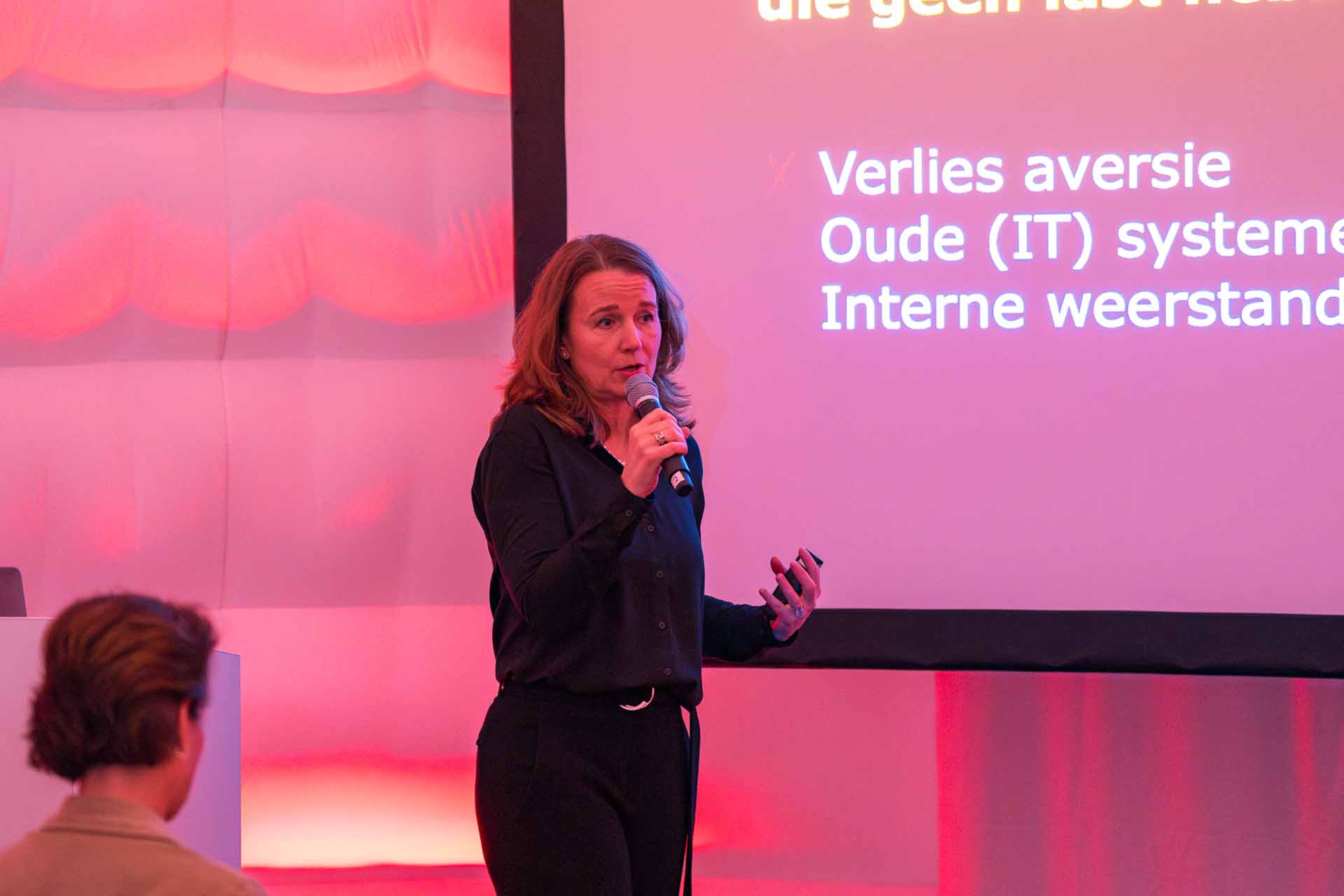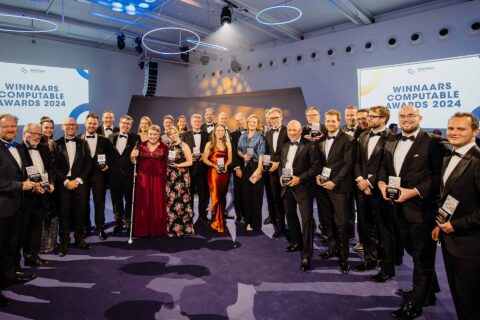From Artificial Intelligence to quantum technology. Technological change affects the work of the healthcare professional as well as the patient in many ways. Yet the healthcare sector still uses only a fraction of what is possible in the technological field to improve care. Therefore, work more with start-ups, argues innovation expert Deborah Nas during Zorg & ict. "Precisely those embrace the new technologies in business models."
Nas works as a professor at TU Delft and holds various supervisory roles in the start-up domain. She will take visitors back in tech history during the session organized by Odido.
"New tech has always changed our lives and our work tremendously. Think of the Internet coming into existence 31 years ago. Or think back nineteen years. That's when Apple brought Web 2.0 into our pocket with the iPhone. The latest disruptive tech, of course, is generative AI. We were shocked a year and a half ago when ChatGPT came along. How good it was and what to do with it."
Tech is the driver of innovation; in fact, it is rarely an impediment to innovation, she continues. What does hamper is organizational structures. "We set up organizations in silos and chain partners. Also hindering innovation are old IT systems and human behavior."
Fear reigns
Nas focuses precisely on the psychology behind that human behavior. How do you get organizations moving? How does society respond to new tech? Again, she reaches back into history. To the ancient Greeks who reacted negatively to writing, the advent of the printing press, newspapers, telephone, TV and the Internet.
"Why do we always have the spotlight on negative effects with new tech?" wonders Deborah Nas. "It's because fear is the strongest emotion that rules. For decades we have feared robots taking over our jobs; now we have that same fear of AI. Most people agree that AI brings short-term benefits, but not long-term ones. Fear is stronger than joy."
Loss aversion also plays a role. "That makes us inclined to like new developments less than what we are used to. That's why AI-based applications enter the healthcare chain with great difficulty. We'd rather our kids play with Lego than Minecraft, when it's basically the same thing but digital."
Innovation power of start-ups
It is the start-ups that do see the opportunities of new technologies and embrace them in business models. Nas: "They don't suffer from loss aversion, old IT systems and have little internal resistance. Therefore, it is precisely an opportunity for traditional organizations to bring in this innovative power by partnering with these start-ups."
So much is possible in healthcare with AI, according to Nas. Consider, for example, prevention and lifestyle, such as Viome, an AI-based health analytics service. "We have an awful lot of health data shared by consumers through apps, smartwatches and Fitbits. But consumers are stuck with provider ecosystem. New parties who want to create a new layer on top of that have a tough time towards consumers. The opportunity lies more in the direction of employers. They, on the other hand, do not want to be tied to one system and want to give access to as many users as possible."
AI for diagnosis
Another good application of AI is diagnosis, Nas continues. She cites as an example Ada, an AI-based model that provides definitive information about the symptoms you have. "If we combine that with a video consultation, we can really change primary care." There are still few applications that may diagnose without a doctor. But that's where we're headed, Nas believes.
One example she cites is the UMC Utrecht. There, researchers are experimenting with technology to predict whether an infection such as a cold, flu or covid in the mother will affect an unborn baby's brain.
AI during treatment
AI can also be very important during treatment. For example, Theator shares video footage during operations for analysis. Other technology also benefits. Tools such as Virtual Reality (VR) or Augmented Reality (AR) glasses, for example, can re-energize demented elderly people thanks to AI. And since last month, Elon Musk' s first Neuralink brain implant has been placed on a human. Noland Arbaugh, paralyzed from the shoulder down, can now play chess and tweet thanks to this brain computer. "This new tech all brings new challenges, but it can also improve the quality of treatments."
Will AI replace humans? In some cases, it might. For example, for monitoring. Momo Medical has developed a sensor for under the mattress in the elderly. "Thanks to AI, you can use it to predict whether a patient will get out of bed and fall," Nas explains. "Nurses no longer have to make evening rounds thanks to this sensor. That provides more privacy and night rest for the patient."
Hippocratic AI already works with 58 Healthcare agents created with AI that replace humans. They are all trained on something specific. "AI can help move work from optometrist to optician, from doctor to assistant. Screening breast cancer with AI can get 13 to 20 percent more diagnosis from photos, and replace work of one radiologist."
Quantum technology
Quantum technology will soon go far beyond AI, Nas predicts. This is a collective term for technologies that use properties from quantum mechanics, and work with particles smaller than atoms. With those particles, all sorts of technological innovations are in turn possible. From extremely fast computers to long-distance data communication. "Until now, we've mostly talked about MRI scans, lasers, computer chips and solar panels, but we're now moving to Quantum 2.0, where we learn to manipulate the very smallest particles."
With this technology, the promise lies in drug development, Nas argues. "Especially in the first phase of drug development, drug discovery, there are opportunities. So from petri dish to computer. It becomes more accessible, faster and cheaper thanks to quantum technology."












